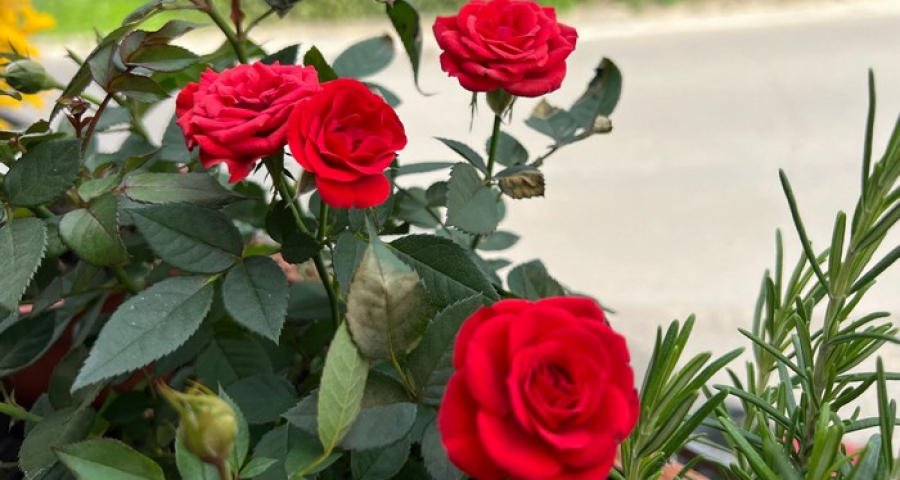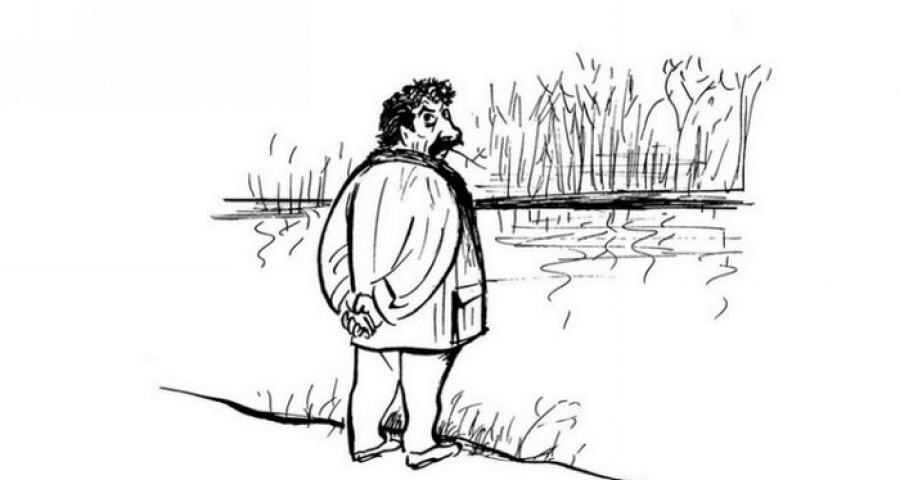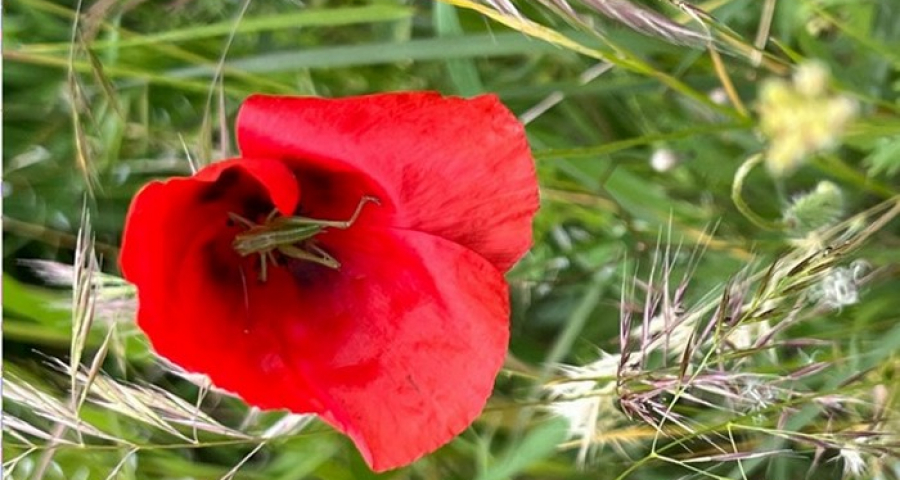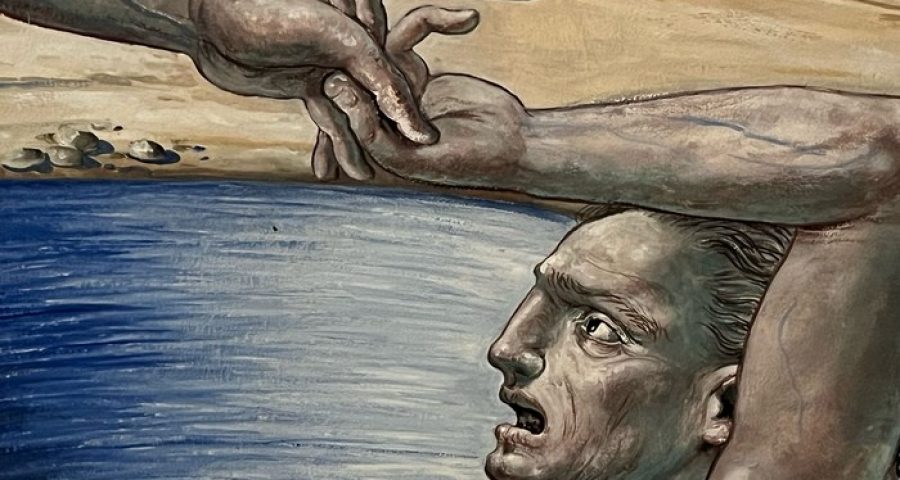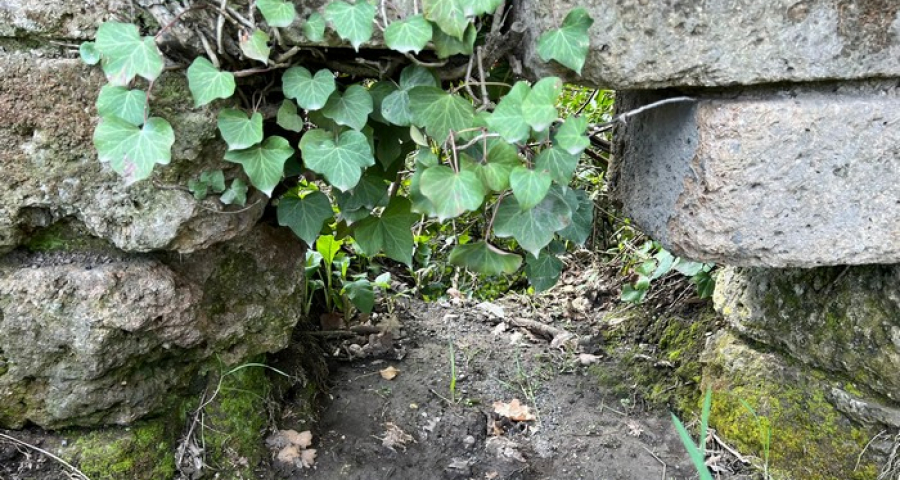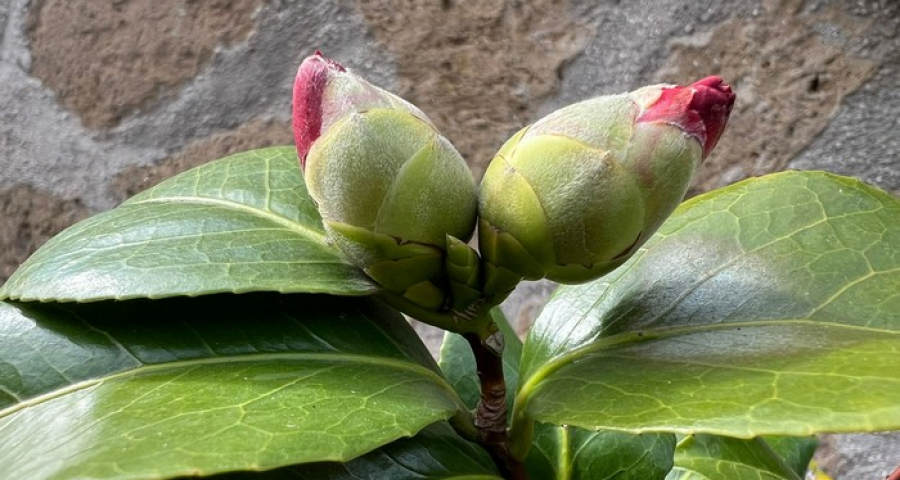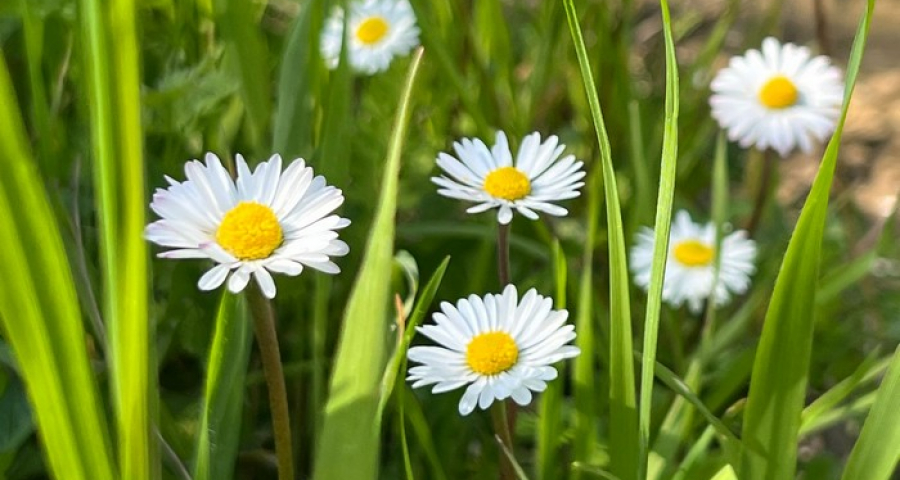In the belly of the Word/9 - The second shelter, given by God, brings the prophet back to his vocation
Luigino Bruni
published in Avvenire on 14/04/2024
"It was not easy to forget the period spent in the belly of the fish; on the contrary, it had dramatic consequences. The strong heat of that belly had burned his clothes and made his hair fall out and his skin was infested with a cloud of insects. To alleviate his condition, the Lord provided a castor-oil plant: one morning, opening his eyes, Jonah saw a plant that had 275 leaves, each longer than the breath of a hand and capable of protecting him from the heat of the sun."
Louis Ginzberg, The Legends of the Jews, VI
The presence of plants in the Bible is ambivalent. Only men, women and animals entered Noah's ark. Plants remained outside, as if the plant kingdom was not life like the animal kingdom. Plants therefore, were not only excluded from the ark of salvation but also from our development model, we did not include them in our cost-benefit analyses. The eclipse of plants has also become an eclipse of the earth which has disappeared from the view of our economy and politics. It progressively moved away towards the horizon until one day we no longer saw it and the next day we started destroying it. At the same time, in the Bible some trees and plants are authentic protagonists of decisive episodes. What would Genesis be without the tree of life and the tree of the knowledge of good and evil? How could we speak about Jeremiah without the almond tree or of Elijah without the broom tree? How impoverished would our hope be without the barren fig tree to which for two thousand years Jesus continues to give another year waiting for it to finally bear fruit? And how could we understand Jonah without the Castor?
“Then the Lord God provided a leafy plant [qiqajon] and made it grow over Jonah, to give shade for his head and to ease his discomfort and Jonah was very happy about the plant” (Jonah 4: 6). Jonah, the prophet, had fled from Nineveh, angry with God for changing his mind and forgiving its inhabitants. We find him sitting under a small shelter, in its shade (4:5). But, despite being already in the shade, God made a mysterious plant grow, a qiqajon, to provide more shade for Jonah, who was very happy about it. “Qiqajon” is a hapax, a word appearing only once in the Bible, a word that is not easy to understand even if usually translated as ‘castor’ (but also by pumpkin or ivy).
Let's start with an obvious question: why did God provide a plant to shade Jonah who was already in the shade? The author did not tell us, as he did not tell us why Jonah was ‘very happy’ because of that plant and that second means of shade. We could easily dismiss, as many interpreters do, this umpteenth bizarre detail of the book, assigning it once again to the humorous literary genre; or once again, we could attempt another interpretation, always risky in the absence of certain robust textual data - and for this reason also exciting.
Jonah had obtained the first shade through the work of his own hands. The castor-oil plant came to him directly from God; the first shade was the result of his work, the second was grace alone. For a prophet those two shades are therefore profoundly different: even if the final outcome was the same (protection from the sun) it was the origin that was different, it was the principle of the shade that changed. In the Bible, at the beginning there is the meaning of everything, of every creation, of every word - ‘In the beginning God created...’ (Gen. 1:1); ‘In the beginning was the Word’ (Jn. 1:1). Today we are interested in phenomena, facts, results and sometimes in the process: homo biblicus was interested in the principle, because what appears means nothing if we do not understand its first meaning, which also becomes the last. Only the light of the beginning reveals the meaning of what lives and happens.
We must also bear in mind that in that shelter, Jonah was in a state of spiritual depression; he had fled from Nineveh and from God and had asked to die, "Now, Lord, take away my life for it is better for me to die than to live!" (4:3) Under that first shade of the shelter Jonah was experiencing failure, remorse and repentance for having changed his mind after the storm, for having been convinced by God to finally go to Nineveh where he had announced an oracle that had not come true because YHWH had changed his mind. That first shade did not relieve the vocational pain of his soul: it protected his head but it did not protect his heart that was damaged, earthquake-stricken, uncovered and in need of another covering, that of the garments for Adam and Eve or at least that merciful mark of Cain.
The shade of the shelter is what we too can find when, after the great vocational and identity failures of our lives, we flee, hide and seek shelter. Sometimes we build it ourselves, other times we are hosted by a friend, a parent, a sister; sometimes we stay in the same room as always, we flee only with our soul and we build ourselves a shelter which is invisible to others (and maybe even to ourselves). In that house, which is sometimes our childhood home, we find some initial comfort, we manage to shelter our head from the sun, our soul from the fears, regrets, anger and ghosts of the past, from the anguish of the future that has become threatening and frightening, the sad outcome of a life lived in an illusion. We spend our days in the company of small things and the dog, we go for many walks, we learn to care for a garden and make jam. But we know that that shade still resembles that of Job (Job 3:5; 17:7), it is not the shade of the ‘wings of God’ of the psalms (Psalm 17:8; 36:8; 57:2; etc.). That first shade can still help us, sometimes it is even essential to not really die after certain perfect storms. We can stay under this first shade for a long time, some stay there until the end and it can be a good end. But it can also happen that, on another day, another ‘shade‘ arrives, a different one. As happened to Jonah: that plant became the touch of the angel that made Elijah get up again. Hence he was ‘very happy‘, which is the first positive emotion we encounter in the book of Jonah. It is a special joy, which perhaps only the prophets really know with this intensity.
With the second shade of the qiqajon Jonah entered another dimension, he felt again the joy of his vocation and therefore of life - for the prophets, vocation and life are the same thing. He had already experienced the non-verbal languages of God - the storm and the big fish - and had been able to interpret them as ‘Word’, because the prophets have the special gift of reading the signs of the times as well as the signs of God. With the appearance of that tree, Jonah repeated the experience he had in the belly of the great fish, when he had felt that that good womb was contained in the maternal bosom of God. And perhaps under the tree a prayer will have arisen again in his soul, another praise, a new thanksgiving: "The Lord is your keeper, the Lord is your shade at your right hand" (Ps 121: 5). The protection of the great fish and that of the qiqajon are different experiences but also very similar to each other, because Jonah also interpreted the arrival of that plant as a second salvation from an almost certain death.
The text tells us, in fact, that God had caused that plant to grow to ‘save’ Jonah ‘from his discomfort’: and what is Jonah's discomfort now if not his anger, indignation and regret? The discomfort of the prophet was certainly not the heat or the strong sun.
That plant had sprouted and grown beside his shelter but it became liberation from Jonah's discomfort because he interpreted that growth as liberation, as hesed-love. Facts alone, even miracles, are not enough to free us from spiritual discomfort: it is essential that we manage to interpret that fact (a plant, an angel, a friend) as a word that God is sending us and convince ourselves that that message is true, that we are not simply deceiving ourselves. And how can we not see in this second shade also an echo of Gabriel's words to Mary?: "The Holy Spirit will come upon you and the power of the Most High will overshadow you" (Lk 1:35). For Jonah, that plant was an angel who brought him an annunciation: and he also believed in that sign-word.
The plant that was provided wouldn’t last forever, it offered Jonah only temporary relief as we'll see. But temporary relief and joy are still relief and joy, their transience does not cancel the good experience that we may have had perhaps only for a day, for a single hour. The ephemeral is not necessarily an illusion, even a butterfly that lives only one day really lives, truly participates and is a protagonist in the being of the universe.
Biblical humanism is a humanism of life, and for this reason it is also a great ethical teaching about the value of life as it unfolds. A mind-set that is not the pursuit of pleasure in the fleeting moment. It is much more. It is that vital instinct that tells us that the life that is happening in and around me right now is the only chance I have to tune in with infinity, with God, with you, with my heart. I don't have a better one. Remembered past life and imagined future life are only vanitas-hevel if they are not tied within a knot of a present that is true and alive precisely because it is present. The miracle of life happens here and now, this is where the possibility of nearing and perhaps touching the eternal takes place. Perhaps only Ecclesiastes (Chap. 8) captured this biblical wisdom in all its strength and dramatic beauty.
Much of human wisdom consists in understanding, one day, that the beauty, joy, pain and love of the day we are living have infinite value, which is infinite not ‘despite‘ their transience but ‘thanks’ to it. It is the ephemerality of this short and swift day that makes it beautiful, true and precious precisely because it is true and will never come back. You can live a good adulthood and a beautiful old age if one day you understand that what is really matters is to listen to is the friend who speaks to me at this precise moment, clearing the table well where my plate is the only one left, and discovering that in that gesture with which I tidy up the kitchen, a solemn and sacred gesture like that of a priest on the altar, I am recreating the whole world with Elohim, I am still enjoying life exactly as I did with the first sip of milk. In that moment, I ‘touch’ my grandparents who are no longer here, my ancestors whom I have never met, the child who has yet to be born; I relive that evening by the fire, that song, that last exchange of glances. If there is a real possibility of eternity on this earth it must be something like this. We learn the craft of living under the temporary shade of the qiqaion.
Dedicated to my friends in the Bose Community, who gave their publishing house the beautiful name of Qiqajon.






